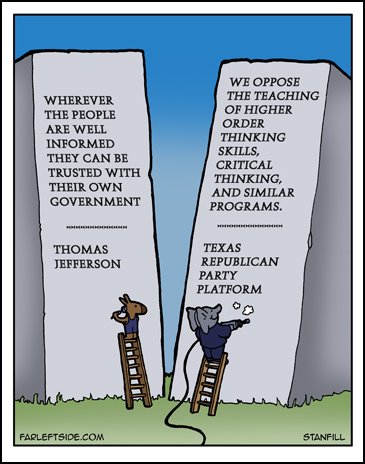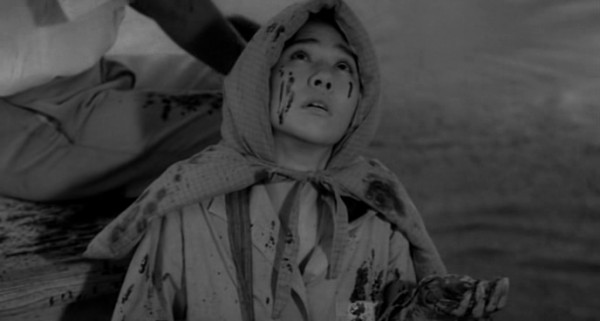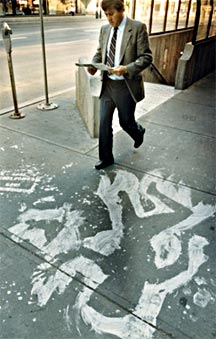I have long advised/ warned students to trust no textbook publisher, biographer, or teacher...everything learned about history deserves a thorough scrutiny and analysis of primary sources, context, understanding the lens, etc. and here is why...
The state of Texas (IMO, politicians and education policy are a dangerous mix) has recently purchased 5 million brand new history textbooks to be distributed statewide. But, will these books teach an accurate and comprehensive (not to mention critical thinking, critical consciousness, social activism, etc.) view of American History or a myopic, riddled with half-truths and blatant omissions Texas-centric view? "Thankfully", McGraw-Hill Publishing Company states (is this supposed to comfort us?) that they made these books especially for the state of Texas ($$$) and no other state will receive this version of their text.
Can any of this really surprise us when Texas Republicans voted to ban the teaching of critical thinking skills in 2012?
"We oppose the teaching of Higher Order Thinking Skills, critical thinking skills and similar programs that are simply a relabeling of Outcome-Based Education which focus on behavior modification and have the purpose of challenging the student’s fixed beliefs and undermining parental authority."
Following are some of the reported updates/ revisions to the "Whitewashed History of Texas".
A few examples of Texas "History"
- Texas-Mexico lessons are "interesting" at best.
- The Civil War was primarily fought over states' rights, sectionalism...slavery is downplayed as a secondary cause.
- Certain aspects of slavery weren't necessarily bad...the "good master" theory...the benefits of so-called religion.
- Slavery is compared to immigration of workers.
- There is no mention of the Ku Klux Klan and other White Power terrorist organizations.
- There is no mention of the Black Codes or Jim Crow Laws.


























